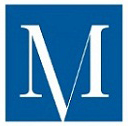Ethics and Integrity: 3 Ways to Make 2016 Better Than 2015
We began 2015 with the infamous “under” inflated footballs and ended it with a political staffer allegedly abusing a technological flaw to obtain competitive information for the benefit of his candidate. In the middle of the year we had the Volkswagen scandal, a pharmaceutical executive choosing to raise prices to astronomical levels because he could – and then being arrested for misleading investors, and of course those in power at FIFA were finally banned from professional soccer. We could all probably think of many other examples of unethical and/or illegal behavior, some of which likely happened much closer to home.
These incidents (and others) all have one thing in common – each of them occurred in a culture which provided people the opportunity to ‘break the rules’ for their own betterment. The Democratic National Committee now “expects each campaign to operate with integrity” going forward. Why do they need to say this? What does integrity mean today?
Individuals who commit ethics and integrity violations can create serious consequences for their employers, not the least of which is fines and public scrutiny. It is the responsibility of leadership to ensure that there is a culture of ethics and integrity in their organizations, and that ALL employees are on board with this culture. Creating the culture is a start, but sustaining it is crucial to long term success.
Here are three things you can do in 2016 to help ensure that everyone in your organization is acting with integrity:
- Leadership needs to walk the talk and lead by example. The tone at the top should demonstrate a commitment to integrity and set proper expectations for employees.
- Include employees in the process – employees are more likely to act in an ethical way if they feel they are included in the design of the culture. Organizations that incorporate employee input and evaluations within their Ethics and Compliance programs are more likely to sustain a culture of Ethics and Compliance.
- A few ethics questions on a Corporate Culture survey is a good place to start – but a stand-alone employee survey dedicated to Ethics and Compliance establishes a baseline measure that allows for a better understanding of whether integrity resides in the organization and what employees need in order to feel a part of the process and allows the organization to track improvements over time.
If you want to address situations before they become real problems, there’s no replacement for knowing what employees think and feel, and are likely to do when confronted by an ethics issue. While utilizing the results of a stand-alone employee Ethics and Compliance survey can’t eliminate all potential ethics and integrity issues, it is a way to help your organization start 2016 in the right direction.
Interested in learning more about how our clients have used stand-alone employee Ethics and Compliance surveys to create and sustain a culture of ethics and integrity? Please reach out to Sindey Dranoff of The Melior Group at 215-545-0054 ext. 108 / [email protected].


